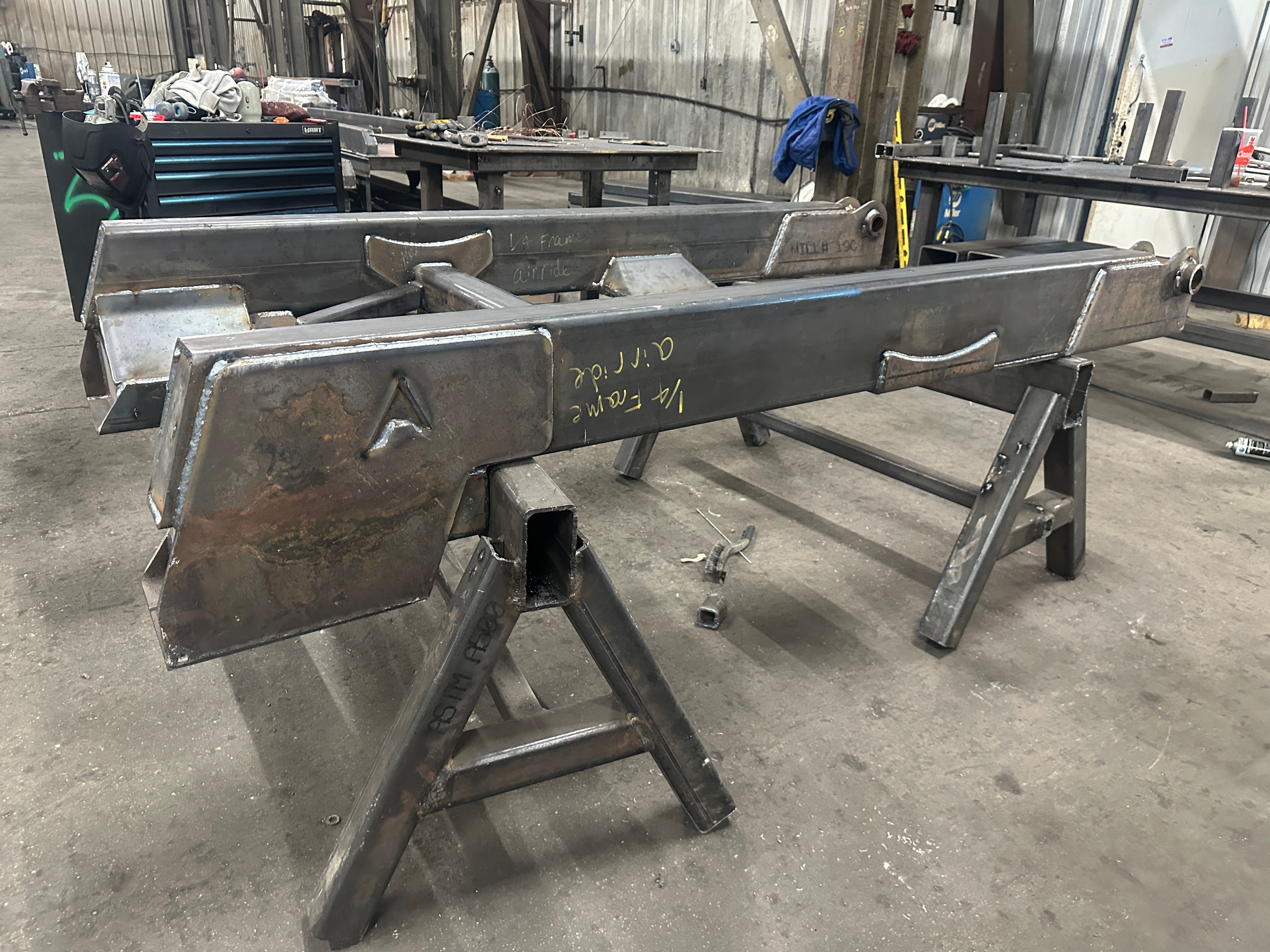
Dump Trailers: How to Choose the Best One for Your Needs
tj@civsav.com
© 2026 Civilized Savage
Based in USA
tj@civsav.com
When it comes to construction, agriculture, landscaping, or heavy-duty hauling, choosing the right dump trailer is one of the most important equipment decisions you can make. A dump trailer isn’t just another piece of gear it’s an investment that saves time, reduces labor, and improves productivity across nearly every type of job site.
At Alko Manufacturing, we understand that no two businesses are alike. The demands of a contractor clearing debris, a farmer hauling grain, and a landscaper moving soil are all different. That’s why understanding the various types, materials, and sizes of dump trailers is essential before making a purchase.
This guide breaks down the most important factors from trailer sizes to steel vs aluminum frames so you can choose a trailer that matches your workload, budget, and long-term goals.
Dump trailers have been a cornerstone of the hauling industry for decades. They are designed to handle tough jobs, enabling faster material movement with less manual labor. The basic principle is simple: load your materials, transport them, and then use hydraulics to tilt and unload efficiently.
But within this simplicity lies a wide range of options. From end dump vs side dump trailers to custom-built designs, each choice affects how your trailer performs in real-world conditions.
A well-chosen dump trailer doesn’t just make work easier it can increase job-site safety, cut operating costs, and extend the life of your fleet.
One of the first decisions buyers face is whether to choose an end dump or a side dump trailer.
Your choice comes down to where and how you’ll be using the trailer. For jobs requiring high capacity and straightforward unloading, end dumps are ideal. For versatility and safety on uneven terrain, side dumps may be the better option.
Another key factor is the trailer’s material. Steel trailers and aluminum trailers both have advantages.
If your projects involve constant heavy-duty use in rugged environments, steel may be the smarter choice. If weight efficiency, corrosion resistance, and long-term operating costs matter more, aluminum is worth the investment.
Dump trailers come in a variety of sizes and load capacities, and selecting the wrong size can create inefficiencies or even safety hazards.
Always consider your average load weight and leave room for growth. A trailer should comfortably handle your regular workload while offering flexibility for occasional larger jobs.
Every business has unique needs, and sometimes a standard trailer won’t cut it. That’s where custom dump trailer builds come in.
At Alko Manufacturing, we work with clients to design trailers that meet their exact requirements whether that means reinforced frames, extra compartments, higher sidewalls, or specialized hydraulic systems. A custom build ensures your investment is perfectly matched to your business operations.
No matter what type of trailer you choose, regular maintenance is the key to long-term performance. Some essential dump trailer maintenance tips include:
A well-maintained trailer can serve you reliably for many years, protecting your investment.
Choosing the right dump trailer comes down to matching your workload with the right features. From deciding between end dump vs side dump, to comparing steel vs aluminum, to evaluating sizes and load capacities, each choice impacts your efficiency and costs.
At Alko Manufacturing, we provide high-quality dump trailers backed by expert guidance, service, and support. Whether you need a standard trailer or a custom-built solution, we’ll help you make the best choice for your business.
When in doubt, always choose a trailer with a slightly higher load capacity than your average need. Overloading leads to safety hazards, faster wear, and expensive repairs. Planning for growth today saves you time and money tomorrow.
Get in touch
© 2025 Civilized Savage
